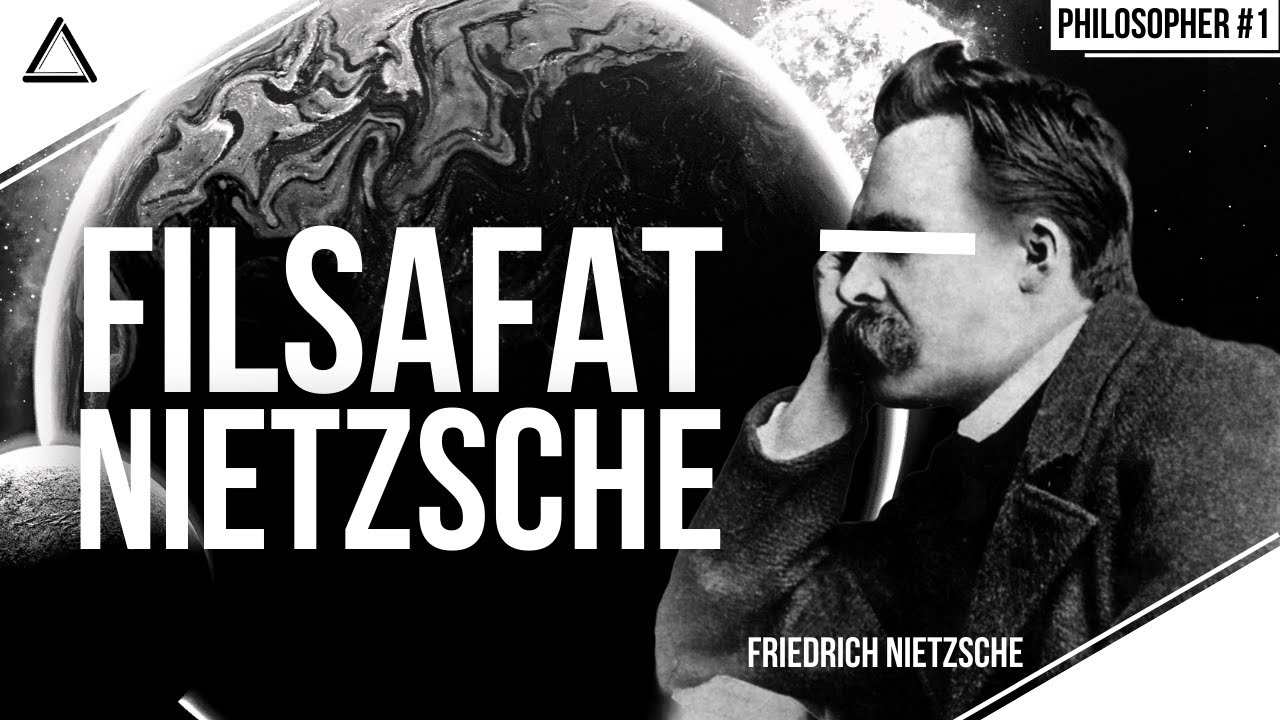PHILOSOPHY - Nietzsche
Summary
TLDRThe video script explores Friedrich Nietzsche's life and philosophy, emphasizing his concept of self-overcoming and the Übermensch. It highlights his critique of Christianity and alcohol, advocating for embracing envy as a motivator and the importance of culture over religion. Nietzsche's personal struggles and his call for a reformation in the face of mass democracy and atheism are also discussed, painting him as a guide for navigating the psychological challenges of the 19th century.
Takeaways
- 📚 Friedrich Nietzsche was a German philosopher known for his challenging and thought-provoking ideas.
- 🗣️ His famous quotes, such as 'What doesn’t kill me makes me stronger' and 'God is dead', reflect his philosophical outlook on life and morality.
- 👨🏫 Nietzsche excelled in ancient Greek studies and became a professor at the University of Basel in his mid-twenties.
- 🏔️ He left academia to live in the Swiss Alps, where he worked on his influential philosophical works.
- 🧔 Nietzsche had a troubled personal life, with strained family relationships and professional setbacks, culminating in a mental breakdown at age 44.
- 💪 His concept of 'Selbstüberwindung' or 'Self-Overcoming' encourages individuals to rise above their circumstances and embrace life's challenges.
- 🍋 Nietzsche advocated embracing envy as a guide to what one truly desires, rather than feeling ashamed of it.
- 🙅♂️ He was critical of Christianity, viewing it as a philosophy that protected people from their envy and true desires.
- 🥤 Nietzsche believed in abstaining from alcohol, associating it with Christianity as a numbing agent that prevents self-improvement.
- 🛑 His declaration 'God is dead' is a commentary on the loss of religious guidance and the need for culture to fill the void.
- 🎭 Nietzsche called for a reformation that would use philosophy and art to guide people through the challenges of the 19th century, such as Mass Democracy and Atheism.
Q & A
How should one pronounce Friedrich Nietzsche's name?
-Nietzsche's name should be pronounced as 'Knee-cha', with the first part sounding like 'Knee' and the second like 'cha'.
What are some of Nietzsche's provocative statements mentioned in the script?
-Some of Nietzsche's provocative statements include 'What doesn’t kill me makes me stronger' and 'God is dead! And we have killed him.'
What was Nietzsche's profession before his mental breakdown?
-Nietzsche was a professor of ancient Greek at the University of Basel, appointed in his mid-twenties.
Why did Nietzsche's official career not work out?
-Nietzsche's official career did not work out because he grew disillusioned with his fellow academics, which led him to resign his job and move to the Swiss Alps.
What are some of Nietzsche's major works mentioned in the script?
-Some of Nietzsche's major works include 'The Birth of Tragedy', 'Human, All Too Human', 'The Gay Science', 'Thus Spoke Zarathustra', 'Beyond Good and Evil', and 'On the Genealogy of Morals'.
What personal problems did Nietzsche face in his life?
-Nietzsche faced several personal problems, including a strained relationship with his family, rejection by women, lack of sales for his books, and a mental breakdown at the age of forty-four.
What is the concept of 'ÜBERMENSCH' or 'SELF-OVERCOMING' as described by Nietzsche?
-The concept of 'ÜBERMENSCH' or 'SELF-OVERCOMING' refers to the process by which a great-souled person rises above their circumstances and difficulties to embrace whatever life throws at them.
What is Nietzsche's view on envy according to the script?
-Nietzsche believed that envy is a natural part of life and should not be ashamed of. Instead, it should be used as a guide to what one truly desires, with envious feelings indicating what one could potentially become.
Why did Nietzsche criticize Christianity in his philosophy?
-Nietzsche criticized Christianity for protecting people from their envy and for promoting a 'slave morality' that he believed was born out of cowardice and weakness, rather than strength and self-improvement.
What is Nietzsche's stance on alcohol consumption?
-Nietzsche advised against alcohol consumption, viewing it as a narcotic that numbs pain and discourages the will to change one's life for the better, similar to his views on Christianity.
What does Nietzsche's statement 'God is dead' actually imply?
-Nietzsche's statement 'God is dead' is not a celebratory remark but rather an observation that religious beliefs, while false, were beneficial for coping with life's problems. He believed that culture should fill the void left by religion's decline.
How did Nietzsche view the role of culture in society?
-Nietzsche viewed culture, which includes philosophy, art, music, and literature, as essential for replacing the guidance and morality that religion once provided. He criticized his era for mishandling culture and called for a reformation that would use it as a practical guide to life.
Outlines

This section is available to paid users only. Please upgrade to access this part.
Upgrade NowMindmap

This section is available to paid users only. Please upgrade to access this part.
Upgrade NowKeywords

This section is available to paid users only. Please upgrade to access this part.
Upgrade NowHighlights

This section is available to paid users only. Please upgrade to access this part.
Upgrade NowTranscripts

This section is available to paid users only. Please upgrade to access this part.
Upgrade NowBrowse More Related Video

Nietzsche Explained - Thus Spoke Zarathustra Summary - How To Read Nietzsche

Nihilisme Membunuh Nilai Tradisional | Filosofi Friedrich Nietzsche | Philosopher #1

The Philosopher Everyone Hates...

NIETZSCHE: Burn it All Down

Conflictoplossing bij Nietzsche

Becoming Who You Really Are - The Philosophy of Friedrich Nietzsche
5.0 / 5 (0 votes)